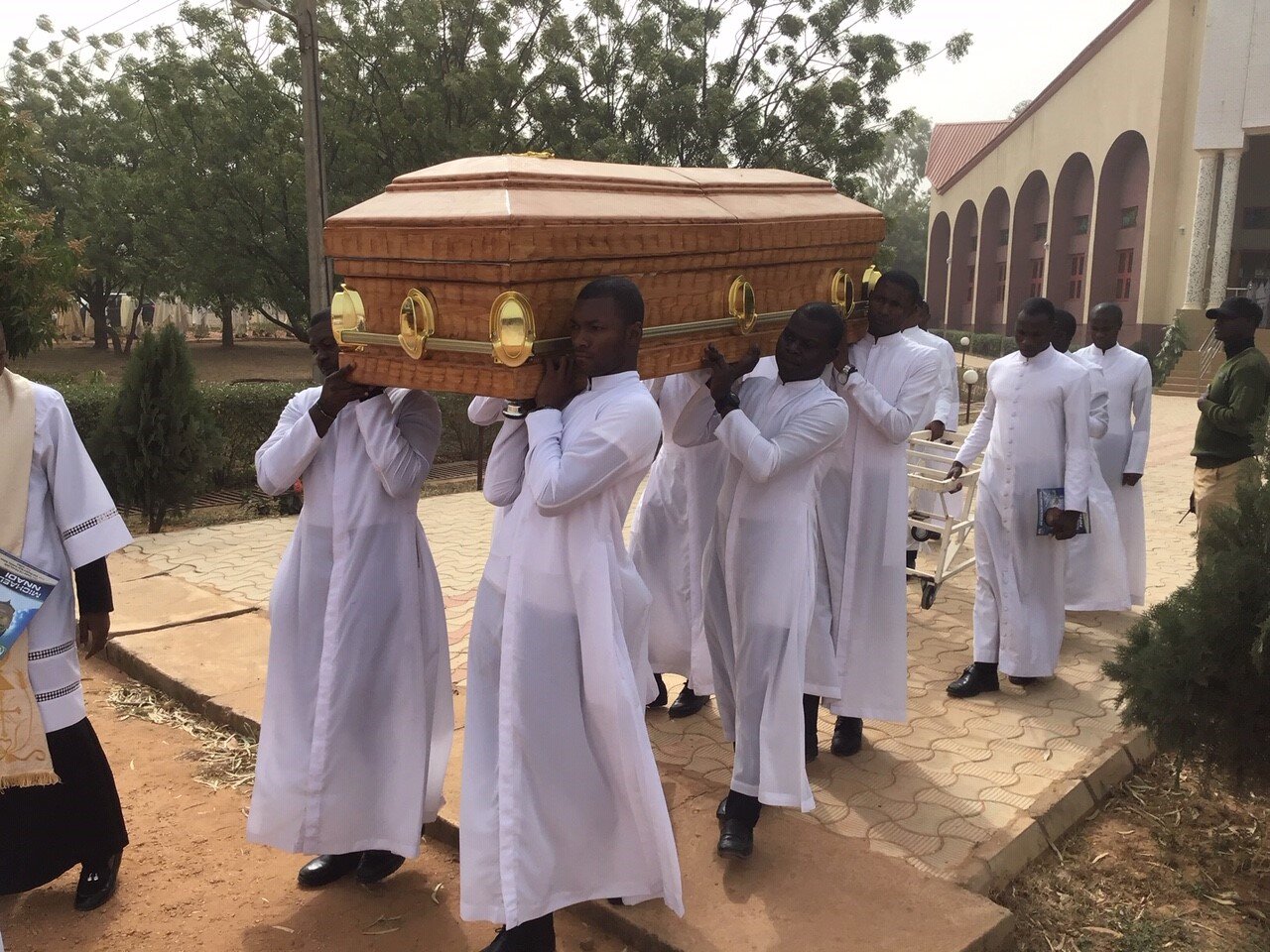
A Catholic-inspired think tank has accused the Nigerian government of various levels of complicity in the killing of Christians by jihadist forces, while some observers predict Africa’s most populous nation may be on the brink of a “religious war.”
At least 500 Christians have been killed in Plateau State since January according to Intersociety, a democracy and human rights advocacy group founded in 2008. Over the past 14 years, at least 52,250 Nigerian Christians have been brutally murdered at the hands of Islamist militants, according to the group.
The director of Intersociety, Emeka Umeagbalasi, has accused the government of encouraging the bloodshed.
“The level of violence is expected to continue and it has continued to rise because the authorities are fuelling the crisis,” he said.
“The authorities are behind the killings. The authorities have injected the security forces with jihadist bad blood, to the extent that the security forces have left what they are supposed to do and they started going after people who are not lawless citizens,” Emeka told Crux.

Referendums to remove the constitutional protection for mothers to not be forced to work outside the home, and to explicitly recognise families not based on marriage, will take place next year.
The Government has, however, given up on inserting an explicit recognition of gender. Critics have accused the Government of not being able to define the terms ‘gender’, ‘man’ and ‘woman’.
It proposes to delete both sections of Article 41.2 on the contribution of women to the common good and the work of mothers in the home and replace it with an Article 42B: “The State recognises that the provision of care, by members of a family to one another by reason of the bonds that exist among them, gives to society a support without which the common good cannot be achieved, and shall strive to support such provision.”
The other vote will amend the article on the family to insert the words “whether founded on marriage or on other durable relationships”.
It also proposes to delete the words “on which the Family is founded” in the article pledging special care for the institution of Marriage.
A related proposal to insert a specific reference to gender will not proceed as there are other clauses referring to equality more generally, and an explicit mention of gender could ‘unwittingly downgrade’ other minorities.

Five more hospitals will start carrying out abortions in December, more than five years after legislation legalising the procedure was passed. The State has had difficulty locating enough doctors willing to perform abortions.
The provision of terminations in St Luke’s hospital, Kilkenny; Letterkenny University Hospital; Wexford General Hospital; Midland Regional Hospital Portlaoise; and Portiuncula hospital, Ballinasloe, follows the recruitment of staff specifically tasked to provide them.
With this latest expansion of the service, 17 out of 19 maternity units in the Republic will be terminate the lives of unborn children.
It is expected that terminations will be conducted in the two remaining units – Cavan General Hospital and South Tipperary General Hospital, Clonmel – next year.

A German missionary priest has been freed in Mali after more than a year in captivity.
News of his release was officially confirmed by his congregation, the Missionaries of Africa, on Wednesday, 29 November.
In a statement they said: “we are overjoyed to know that he is finally free after so many months.”
Father Hans-Joachim Lohre is member of a missionary Society known as the White Fathers. He leads the Institute for Christian-Muslim dialogue in Bamako.
Fr Ha-Jo was aware of the risks to his safety by continuing to work in Mali. Still, he persisted, driven by a desire to improve the situation for the country overall and to remain with his small Christian community. Hans-Joachim Lohre, known affectionately as Fr Ha-Jo, disappeared in Bamako, Mali, on 20 November 2022. He had over 30 years of experience in Mali. His car was found abandoned, and the cross he normally carried was on the floor.
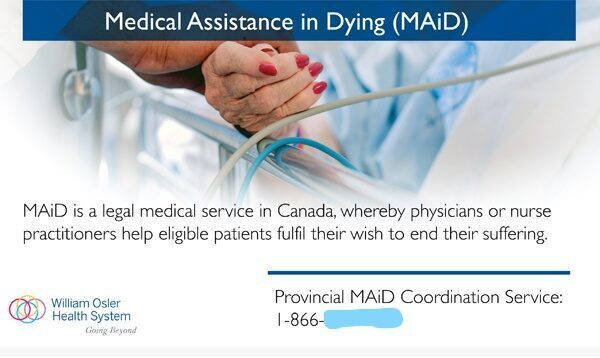
The British Columbia government rolled out a plan to provide euthanasia and assisted suicide to patients of a Catholic Hospital – by building a facility next door to the hospital. It is to be connected to the hospital by a corridor.
The Ministry of Health said this would allow the patients to avail of Medical Assistance in Dying (MAiD) “without having to be transferred to another setting”.
The government said the “clinical space” will be staffed by the secular Vancouver Coastal Health staff and be connected by a corridor to the Catholic St. Paul’s Hospital.
Providence Health Care, the provider that operates St. Paul’s, said the ministry’s announcement supports and respects Providence’s position of not allowing MAiD to be performed within the walls of a Catholic facility or setting.
Providence “recognizes that in Canada patients have the legal right to choose medical assistance in dying if they are eligible and if that is their wish,” and already works closely with Vancouver Coastal Health to discharge patients and arrange their transfer for MAiD, the spokesperson said.
Vancouver Archbishop J. Michael Miller said the government’s directive “respects and preserves Providence’s policy of not allowing MAiD inside a Catholic health care facility,” and the new patient discharge and transfer protocols are consistent with existing arrangements for transferring patients from its other hospice and palliative care sites, St. John Hospice, May’s Place.
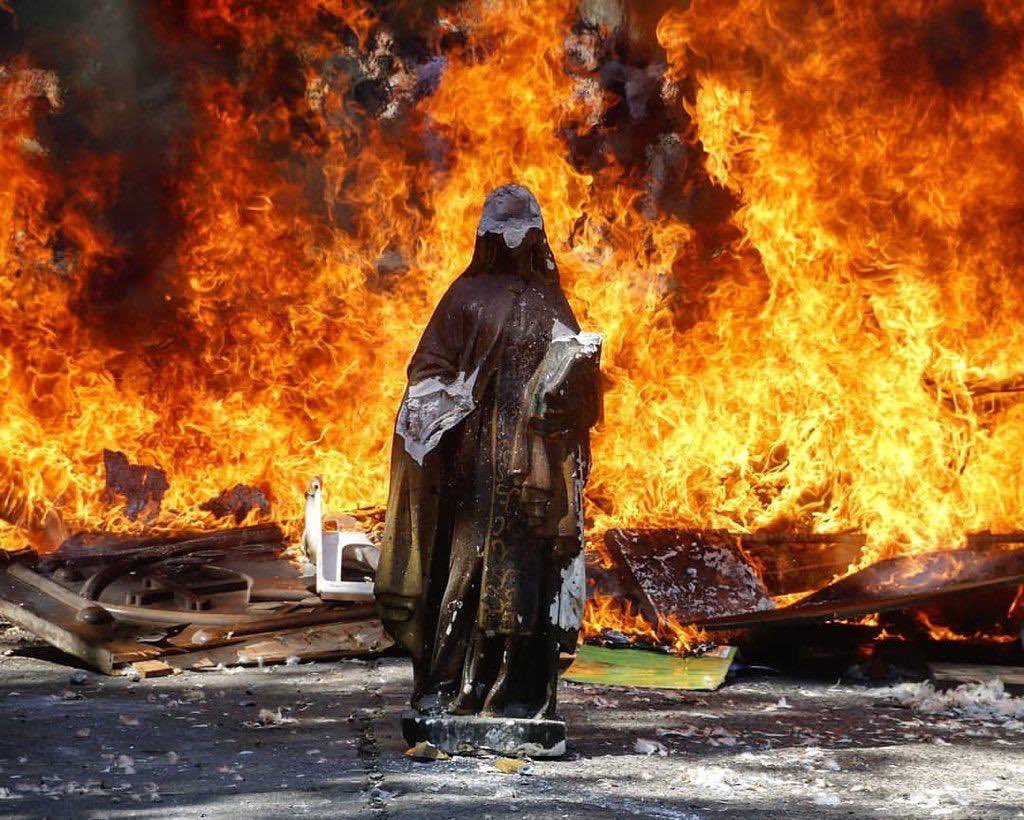
Four people have been killed in an explosion at a Catholic Mass in the southern Philippines on Sunday morning. ISIS has claimed responsibility.
The incident occurred at the gymnasium of Mindanao State University in Marawi, the country’s largest Muslim city.
Forty-two others suffered mostly minor wounds, authorities said, adding the situation was “under control”.
In 2017, Marawi was the scene of a five-month battle between government forces and militants with links to the Islamic State group.
The Daulah Islamiyah-Maute Group could be behind Sunday’s bombing, said Brig Gen Allan Nobleza, the police commander in the region.
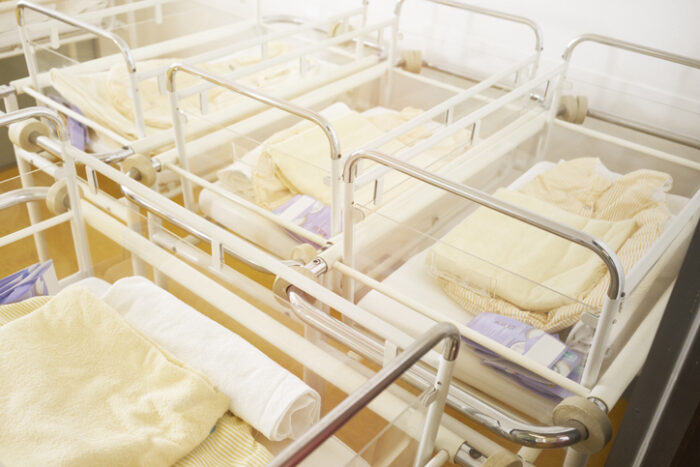
At the same time, almost 41pc of births were outside of marriage, an increase from last year.
Commenting on the figures, Seán O’Connor of the CSO said: “we can see the number of births has decreased by 1,002 (or 6.9%) when compared with the same quarter in the previous year, down from 14,449 in Q2 2022 to 13,447 in Q2 2023.
“Births to mothers aged less than 20 fell from 222 in Q2 2022 to 176 in Q2 2023. The average age of mothers was 33.3 years in Q2 2023, up slightly from 33.2 reported in the same quarter in 2022, while 10 years ago, the average age was 32.2 years for the same period.
“More than two in five (40.9%) births were outside of marriage/civil partnership, compared with the same quarter a year earlier when 44.2% of births were to mothers outside of marriage. Ten years ago, in Q2 2013, this proportion was more than one in three (34.0%) births.”
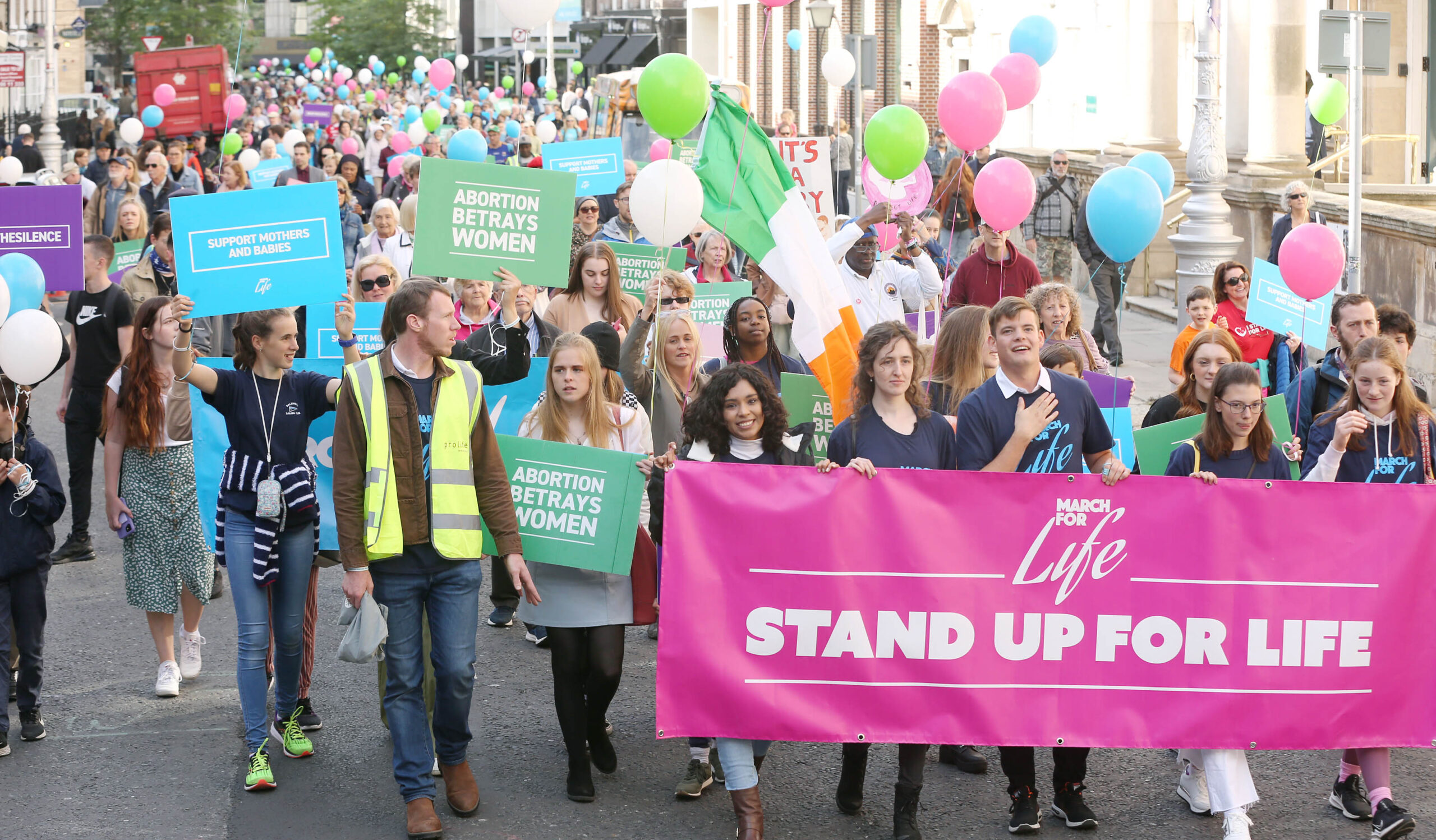
A vaguely worded assurance from the Department of Health that pro-life marches won’t be affected by new exclusion zone legislation has raised alarm.
Following a query from The Irish Catholic regarding so-called ‘safe-access zones’ around abortion providers, the department said in a statement: “There is no intention to criminalise bona fide protest marches which incidentally pass through safe access zones.”
Leader of Aontú Peadar Tóibín TD was sharply critical, saying the assurance it provided was “incredibly vague”.
“I would have serious concerns over the fact that we are potentially facing a situation where a human right, a right to life protest, could be refused by the Government on the main street of the capital city in our country while a protest supporting further deregulation of abortion could be allowed – so the Government would take a political decision on the objectives of a rally before a rally or a protest would happen,” he said.
“That is a very, very dangerous development, it’s a dystopian development in a liberal democracy, and I would appeal for the Government even at this stage to withdraw it.”

34.5% of women experience depression post abortion according to a new meta-analysis of psychiatric literature recently published in the peer-reviewed journal BMC Psychiatry.
The authors analysed 15 studies across the world – from China, Germany, Iran, Australia, Kenya, Jordan, Kosovo, Denmark, Lithuania, Turkey, and the Netherlands. They noted that post-abortion depression is a “common problem for all women of reproductive age.”
Moreover, the review shows that women from lower-income nations are more likely to experience post-abortion depression compared to women from higher-income nations.
The overall findings were somewhat skewed however as the meta-analysis also included data from three research papers dealing with spontaneous abortion/miscarriage. When these three papers are set aside, the studies focussing solely on induced abortion show even higher rates of depression post abortion.
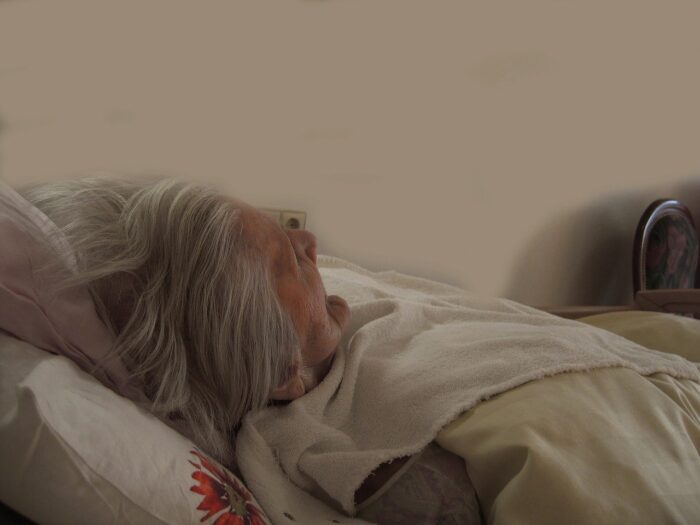
Less than half of respondents to a survey on attitudes to death say they want a funeral, according to research just published in the UK.
The researchers say it confirms that society today “keeps death at arm’s length and out of sight”.
Madeleine Pennington and Nathan Mladin of the Theos think tank say people are increasingly likely to grieve for others behind closed doors: “religious or not, we think a funeral should celebrate the life of the deceased and hold space for mourning together, but less than half of us (47%) now say we want a funeral at all”.
They add that while financial pressures play a part in these decisions, religious and spiritual perspectives are even stronger determinants of whether people want a funeral or not.
“In this sense, reducing religious affiliation has made greater room for market forces to shape how we grieve. The result is a significant realignment in British grieving practices. And further changes to the ways we grieve may come, given higher levels of openness to emerging ‘grief technologies’ among the young”.